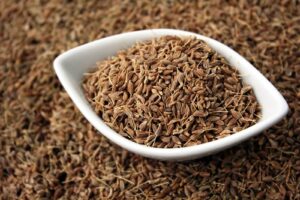Neem, often referred to as Azadirachta indica, is a versatile and extraordinary tree that has left an indelible mark on history, medicine, and our daily lives. Its origin traces back to the Indian subcontinent, where it has been revered for centuries. In this comprehensive exploration, we will delve into the intriguing world of neem, uncovering its origin, delving into its rich history, and uncovering a treasure trove of benefits. We’ll also explore the various ways to consume neem and provide essential precautions for harnessing its potential fully.

Unearthing the Origins of Neem
The roots of neem run deep in the soil of the Indian subcontinent. This remarkable tree is native to the Indian subcontinent, primarily found in India, Bangladesh, and Pakistan. Neem has been a part of Indian culture and traditional medicine for over two millennia. Its scientific name, Azadirachta indica, signifies the importance of this tree in Indian culture, with “Azad” meaning “free” and “dirakht” meaning “tree” in Persian, highlighting its freedom from diseases and pests.
A Glimpse into Neem’s Rich History
Neem in Ancient Texts
Neem’s historical significance can be traced back to ancient Indian texts. The earliest mention of neem can be found in the Vedas, the sacred scriptures of Hinduism, which date back to around 1500 BCE. These texts describe neem as a divine tree, symbolizing purity and health.
Neem in Traditional Medicine
Ayurveda, the traditional system of medicine in India, has long recognized the medicinal properties of neem. It is considered one of the most potent herbs in Ayurvedic medicine, with mentions in texts like the Charaka Samhita and Sushruta Samhita. Neem has been traditionally used to treat various ailments, from skin disorders to digestive issues.
The Bountiful Benefits of Neem
1. Skin Elixir
Neem is renowned for its skin-nourishing properties. It contains compounds like nimbidin and nimbin that have potent antibacterial and anti-inflammatory effects. Neem oil, derived from its seeds, is a popular remedy for acne, eczema, and psoriasis. It can also alleviate the discomfort of insect bites.
2. Oral Health
Incorporating neem into oral hygiene practices can work wonders. Neem twigs have been used for centuries as natural toothbrushes in India. They help combat dental issues like gum disease and cavities while ensuring fresh breath.
3. Immune Booster
The phytochemicals present in neem leaves and bark stimulate the immune system. Regular consumption of neem can fortify your body’s defenses against infections.
4. Pest Repellent
Neem is a natural pesticide. It’s a key ingredient in many eco-friendly pest control products, safeguarding crops without harming the environment.
5. Blood Purifier
Neem’s ability to purify the blood has earned it the moniker “Nature’s Detoxifier.” It helps in eliminating toxins and maintaining overall health.
6. Diabetes Management
Research suggests that neem can assist in managing blood sugar levels, making it beneficial for individuals with diabetes.
7. Digestive Aid
Neem leaves are known for their digestive properties. They can alleviate digestive discomfort and promote healthy digestion.
Ways to Consume Neem
1. Neem Leaves
Consuming neem leaves, either fresh or dried, is a traditional method of reaping its benefits. They can be brewed as tea or incorporated into various dishes for a bitter yet nutritious twist.
2. Neem Oil
Neem oil is a versatile product. It can be applied topically for skin and hair care or ingested in small quantities after dilution.
3. Neem Capsules
For those who find the bitter taste of neem unpalatable, neem capsules are a convenient option. They offer a measured dose of neem’s goodness without the taste.
Precautions When Using Neem
While neem offers numerous benefits, it’s essential to exercise caution:
1. Allergies
Some individuals may be allergic to neem. It’s advisable to perform a patch test before using neem-based products extensively.
2. Dosage
Excessive consumption of neem can lead to adverse effects. Always follow recommended dosage guidelines and consult a healthcare professional when in doubt.
3. Pregnancy and Lactation
Pregnant and lactating women should avoid neem due to potential side effects. It’s crucial to prioritize safety during this period.
4. Drug Interactions
Neem may interact with certain medications. If you’re on prescription drugs, consult your healthcare provider before adding neem to your routine.
Conclusion
In the world of botanical marvels, neem stands tall as a true miracle tree. Its rich history, myriad of benefits, and versatile consumption options make it an invaluable asset to humanity. Whether you seek improved skin health, enhanced oral hygiene, or overall well-being, neem has something to offer. However, as with any natural remedy, it’s crucial to approach it with knowledge and caution to unlock its full potential safely. Embrace neem, and let this remarkable tree enhance your life in more ways than you can imagine







